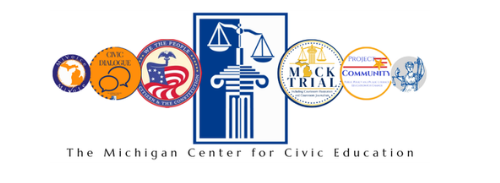Students learn about the nation’s jury system and its importance to the rule of law in the United States. Students will experience the Sixth and Seventh Amendments at work as they engage in the main lesson activities, including one in which they will serve as jurors.
Civics Lessons
Making Decisions: by Group: The Jury System
Constitution Day Lesson-6th Amendment
The goal of this activity is to introduce 6th grade students to the 6th Amendment of the US Constitution (guarantee of an impartial jury for criminal defendants). The materials illustrate how the American juror selection process differs from the jury selection process used in ancient times during the Roman Republic.
Participating in the Jury System
Students participate in activities and discussions about the relationship of a democratic society to its legal institutions, and the issues of fairness and equality under the law and legal system. They learn how constitutional amendments such as the Fourteenth Amendment influence lawsuits, and they will apply concepts within the Bill of Rights to jury trials. Students conduct research to compare the U.S. jury trial system to trial systems in other countries.
B.B. Wolf v. Curly Pig Mock Trial
Mock Trial Script of Curly Pig vs the Big Bad Wolf
Goldilocks vs. the Three Bears
This scripted mock trial includes ideas for pre and post mock trial activities.
Krabbs v. Plankton Mock Trial
Students learn about the different roles and responsibilities in a court by participating in a mock trial.
The Problem of SpongeBob RoundPants
This short scripted mock trial for grades 4-6 involves SpongeBob suing Abercrombie and Fish for pants that don’t fit. Scripted parts allow the trial to move quickly to jury deliberations during which the student jurors actually decide the verdict of the case.
Yertle the Turtle Mock Trial
This mock trial exposes students to the mechanics of a jury trial, and stresses the importance of functioning as a juror.
The American Jury: A Voir Dire Simulation
Students participate in a simulation of the jury selection process
The Jury System
In this lesson, students identify pros and cons of jury trials and judge-only trials, plus develop and respond to questions that might help to ensure the selection of a fair and unbiased jury.

